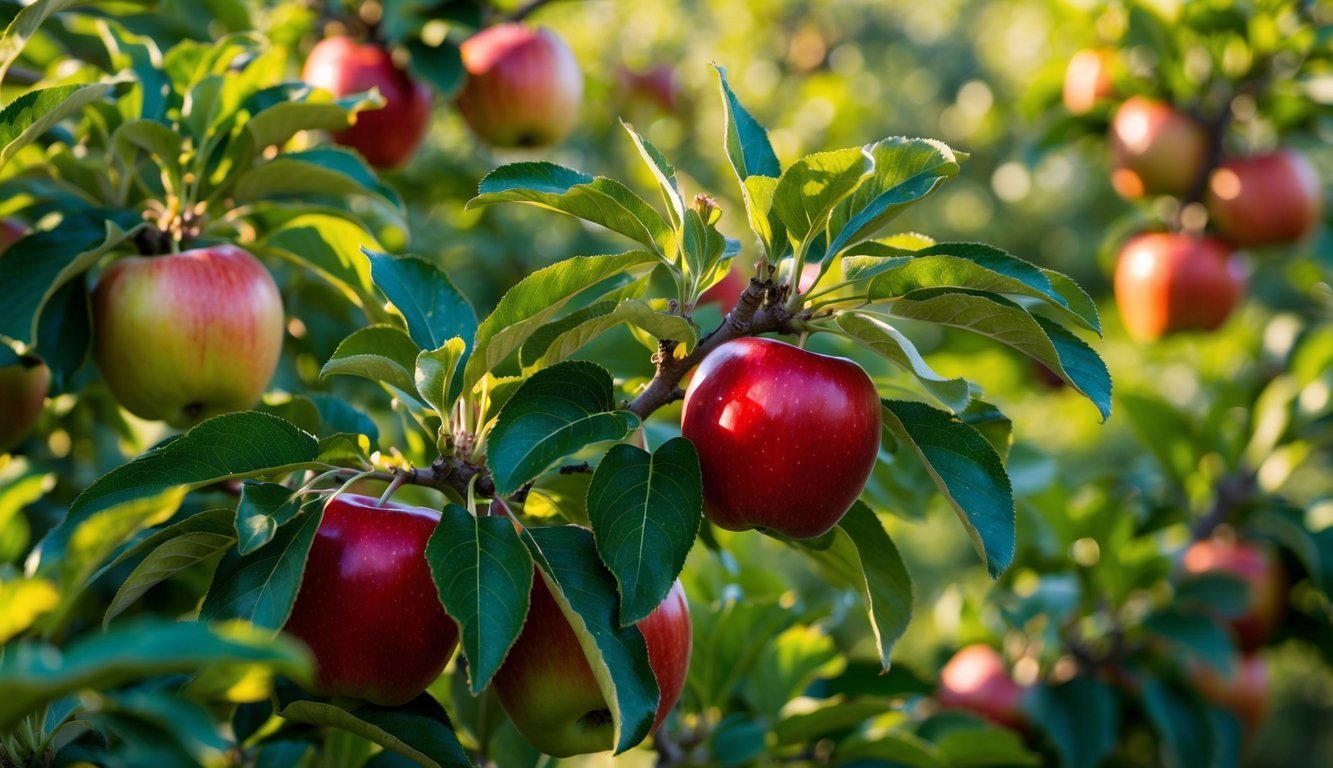
Apples rank among the most economically vital fruit crops globally, grown in over 100 countries.
Among the diverse varieties, spur-type apple trees are highly prized by growers for their compact size, superior productivity, and reduced maintenance needs.
However, the genetic mechanisms that contribute to the traits of these spur-type trees have remained elusive until now.
Genomic Insights into Fuji Apples
An international research team has made significant strides by achieving a complete “fully phased” genome sequencing of the beloved Fuji apple.
This study offers a comprehensive genetic framework, enabling researchers to distinguish between the genes inherited from the Fuji apple’s two parental varieties.
With this genetic reference in hand, the team studied 74 clonal variations of Fuji apples, revealing important somatic mutations.
These mutations arise during the plant’s life cycle rather than through inheritance, playing a crucial role in the emergence of new traits, including the spur-type growth habit and earlier maturation in some apple trees.
Benefits of Spur-Type Apple Trees
Zhangjun Fei, a leading researcher and professor at the Boyce Thompson Institute, emphasizes that spur-type apple trees are particularly favored by farmers.
Their ability to produce more concentrated flower buds means improved fruit yields, and their lower pruning needs make them ideally suited for modern orchards, especially in challenging environments.
The Fuji apple, a cultivar that originated from crossing the Red Delicious and Ralls Janet varieties in 1939, is renowned for its sweetness and crisp texture.
Notably, in China, Fuji clones account for over 70% of the market, demonstrating how spur-type apples enhance productivity and adapt well to adverse growing conditions like poor soil and drought.
One major breakthrough from this research was identifying the gene MdTCP11, crucial for regulating tree growth.
The study revealed that spur-type apple trees exhibit a significant deletion in a DNA segment linked to this gene.
This genetic alteration boosts MdTCP11’s activity, resulting in shorter branches and a denser overall structure.
Implications for Future Apple Cultivation
Additionally, the researchers noted lower levels of DNA methylation in spur-type apples compared to their standard counterparts.
This decrease augments the activity of the MdTCP11 gene, further enriching the beneficial traits found in spur-type trees.
These findings carry immense potential for the future of apple cultivation.
Understanding the genetic foundations can help breeders create new apple varieties that combine compact growth with other desirable traits, such as disease resistance.
Furthermore, this research sets the stage for more sustainable practices in apple farming.
Compact trees are not only easier to manage but also yield higher production in limited spaces, showcasing how genetic insight can drive efficient and eco-friendly agricultural methods.
Source: ScienceDaily

